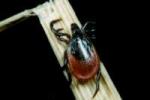Research activities of the Institute of Parasitology
Mission statement
The Institute of Parasitology performs research on human and animal parasites at the organismal, cellular and molecular levels. Its mission is to acquire, advance and disseminate knowledge of the biology and host relationships of parasitic protists and related eukaryotic microorganisms, helminths (parasitic worms) and arthropods. The Institute pursues this goal through research, education and other activities at both the national and international levels.
General information
The Institute of Parasitology was established in Prague in 1962 and was relocated to České Budějovice in 1985. It is the principal institution in the Czech Republic devoted exclusively to parasitological research. The main research areas encompass protistology, helminthology and medical entomology, including studies on the causative agents of the infections transmitted by arthropods. The results contribute to the prevention and control of human and animal parasitic diseases and have also an impact on agriculture and fisheries.
The laboratories of the Institute of Parasitology are well equipped with instruments to perform a vast array of methods such as scanning and transmission electron microscopy, histology, biochemistry, molecular biology, phylogenetics, and tissue and cell cultures. Its facilities make it possible to study host-parasite interactions at the organismal, cellular and molecular levels. The Institute also possesses an Animal House Facility accredited for experiments with laboratory animals and maintains cultures of several parasitic protists, cell lines, ticks and mosquitoes. A large collection of type and voucher material (about 3,000 species of protists, helminths and parasitic arthropods) and a comprehensive parasitological library are the largest in the country. Scientists of the Institute provide expert opinions on parasites to the national and international agencies and the Institute offers postdoctoral residency training and international training courses in parasitology. The Institute of Parasitology publishes of the international journal Folia Parasitologica. It is issued quarterly and publishes contributions from all branches of parasitology.
Research areas
Conducted research is focused on the taxonomy and biology of parasites as causative agents of diseases in man and animals. Priority research includes:
-
Parasites of fish
- Morphology, molecular taxonomy and pathogenicity of amphizoic amoebae
- Life cycles, ultrastructure and phylogeny of myxosporeans and microsporidia
- Systematics, ultrastructure and biology of helminth parasites related to the aquatic environment
-
Molecular biology of parasitic protists and nematodes
- Functional genomics of kinetoplastid flaggellate, especially Trypanosoma brucei
- Secondary endosymbiosis and evolution of plastids
- Genetic analysis of the nuclear receptor function in the model nematode Caenorhabditis elegans
-
Biology of disease vectors: molecular interactions involved in pathogen transmission
- Immunology of host-vector interactions with respect to pathogen transmission
- Molecular and cellular factors of pathogen transmission in ticks
- Molecular ecology of Lyme borreliosis and tick borne encephalitis with respect to their antigenic structures and protein carbohydrate interactions
-
Molecular taxonomy and phylogeny of parasites
- Phylogeny of parasitic protists, helminths and arthropods, and hostparasite coevolution
- Parasite distribution and host specificity as the result of coevolutionary and host-switching events
- Molecular phylogeny of the bacteria associated with blood-feeding arthropods
-
Parasitic protists of man and animals with a special focus on opportunistic parasites
- Human parasites with special attention to emerging opportunistic parasites
- Biology, pathogenicity and phylogenetic relationships of coccidia
- Immune response against microsporidia















